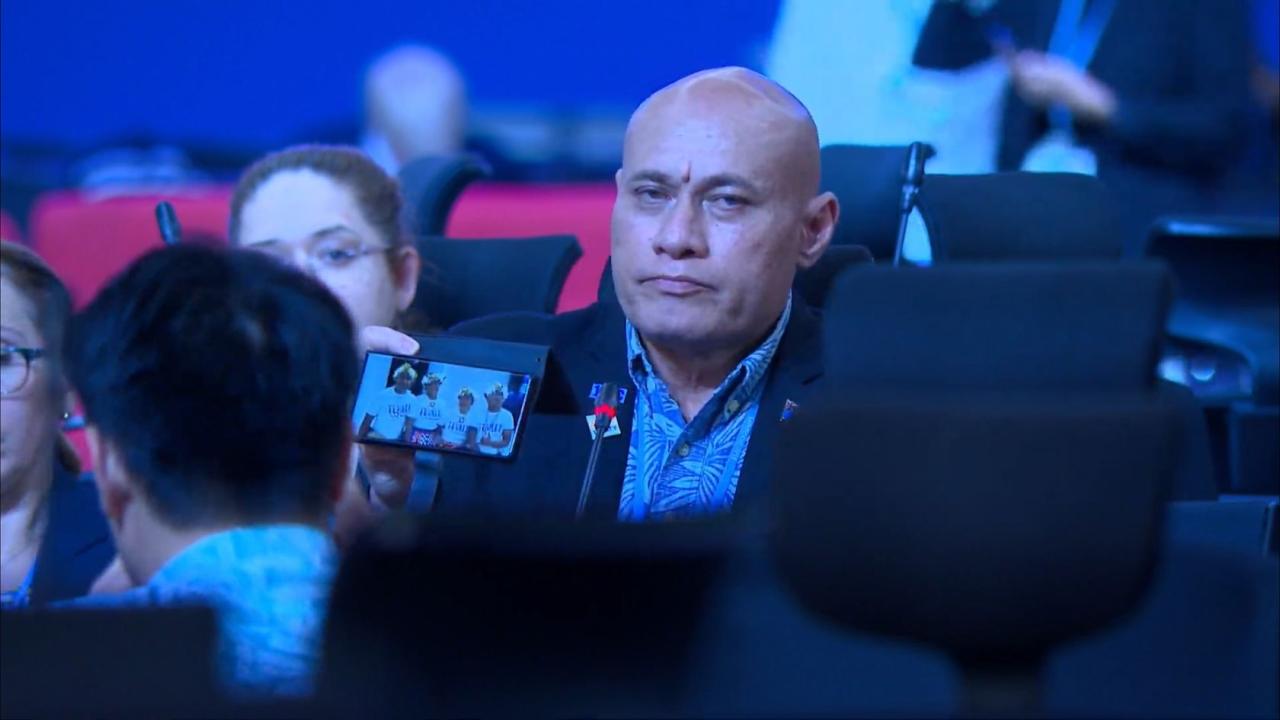Today was Day 11+1 (and 2 as I am writing this in the early morning of Sunday) at COP27 and while most of the venue was already deserted on Saturday, the negotiation rooms and surrounding corridors were crowded. In the morning of Saturday, the atmosphere offline and online seemed rather bleak. Many seemed to have lost hope, especially regarding the loss and damage funding arrangements (see this video of Saleemul Huq, Director of ICCCAD, explaining the status quo on Saturday morning). Around the same time, Frans Timmermans announced the EU was prepared to “walk away” from the negotiations if Parties didn’t manage to keep 1.5 alive, which received backlash from observers, including from the former UNFCCC Executive Secretary Yvo de Boer.
At 13:00 Sharm el-Sheikh time on Saturday, however, things turned around when the Presidency released a new draft cover text and details on a loss and damage fund that seemed to be agreeable with developing countries (see also key passages as highlighted by Saleemul Huq himself). Nothing was set in stone though until the final decision on the cover text would be taken. Nonetheless, more and more people, including negotiators and observers, came forward on Twitter, heralding this as a historic success for developing countries who have been tirelessly pushing and fighting for this kind of recognition and financial support for the loss and damage they have experienced ever since the birth of the UNFCCC itself, some 30 years ago. See some of the tweets here, and here. There were celebrations going on in the halls of COP27 already.
By 23:00 last night, consultations were still ongoing, for Parties only. Huddles in the corridors were also reported via Twitter. These consultations had been going on since the early evening of Saturday. While the L&D fund seemed to be in the clear, there still remained crucial issues around mitigation (and the phase out of coal and other fossil fuels) in order to keep 1.5 alive. It seemed to be the usual suspects to hold the negotiations on fossil fuels back.
At midnight, it was still unclear what would happen next (and over the next couple of hours), so I went to bed. When I woke at 07:00 this morning, the closing plenary had been underway since roughly 03:00. I tuned in and was able to follow the final Party and constituency remarks as well as the formal closing of COP at 09:20 local time. (Sometime in between, COP President Shoukry urged Parties to be concise in their statements as the interpreters would leave by 09:00.)
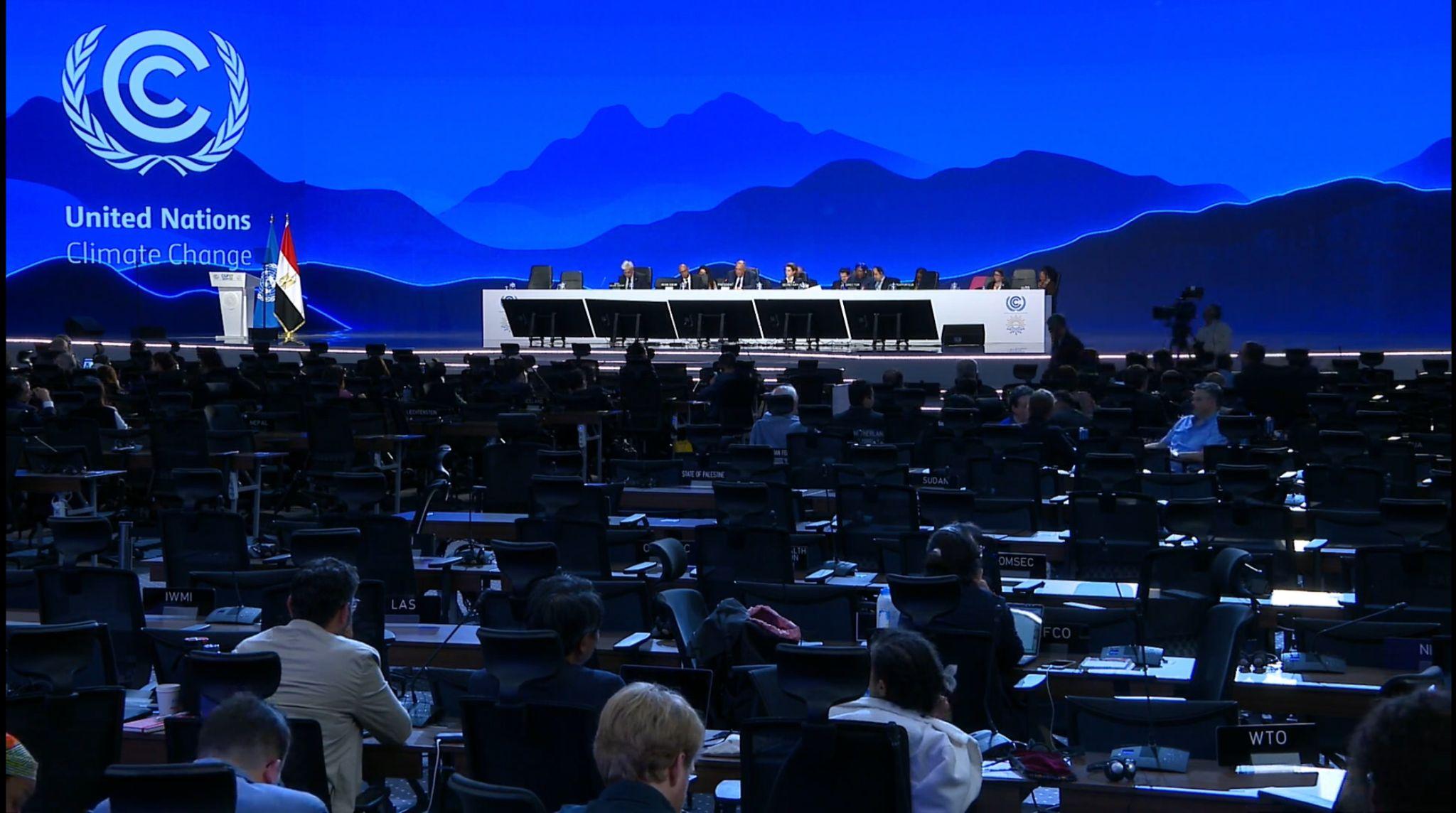
The general sentiment and echo was that the L&D fund agreed during the early morning hours in the closing plenary was a historic achievement driven by the tireless efforts of AOSIS, G77+China and civil society. However, much frustration and disappointment was voiced by Parties and Constituencies about the missed opportunity to strengthen mitigation ambitions to keep 1.5 alive, especially missing language on fossil fuel phase out. Here are a few excerpts from some of the interventions (not in order of interventions).
Zambia, on behalf of the African group, pointed out that this 'Africa COP' had not done enough for the African people ().
The Maldives, who brought with them the climate clock to the plenary, said the establishment of an L&D fund was a “historic moment for the people and the planet." They reiterated their call for a “mosaic of solutions” and emphasized that “climate change is transboundary in nature and can only be resolved in dialogue…and cooperation." These sentiments were echoed by Tuvalu and the Republic of the Marshall Islands. In both their interventions, however, they also pointed to the critical need for improved mitigation and adaptation actions to avoid further loss and damage. Minister Paeniu for Tuvalu said “we have finally delivered climate justice”; it was “however regrettable that we haven’t achieved an equal success in our attempt” to keep 1.5 alive as there was no strong language on phasing out fossil fuel and no text in peaking of emisssions before 2025.

During his speech, the Minister showed a picture of 5 youth delegates from his delegation. He said that he had brought them to “demonstrate the rich cultural heritage of our people and communities in the Pacific…we don’t want to compromise their future.” He said they should all want to leave them a good legacy as good as we had.
In this context, Kathy Jetñil-Kijiner on behalf of the Marshall Islands echoed that “we are not doing enough” to prevent more loss and damage. According to the IPCC, “we need to peak emissions by 2025.” She continued, “it’s on our doorstep ….the G20 must show leadership…the faith of so many is in your hands.”
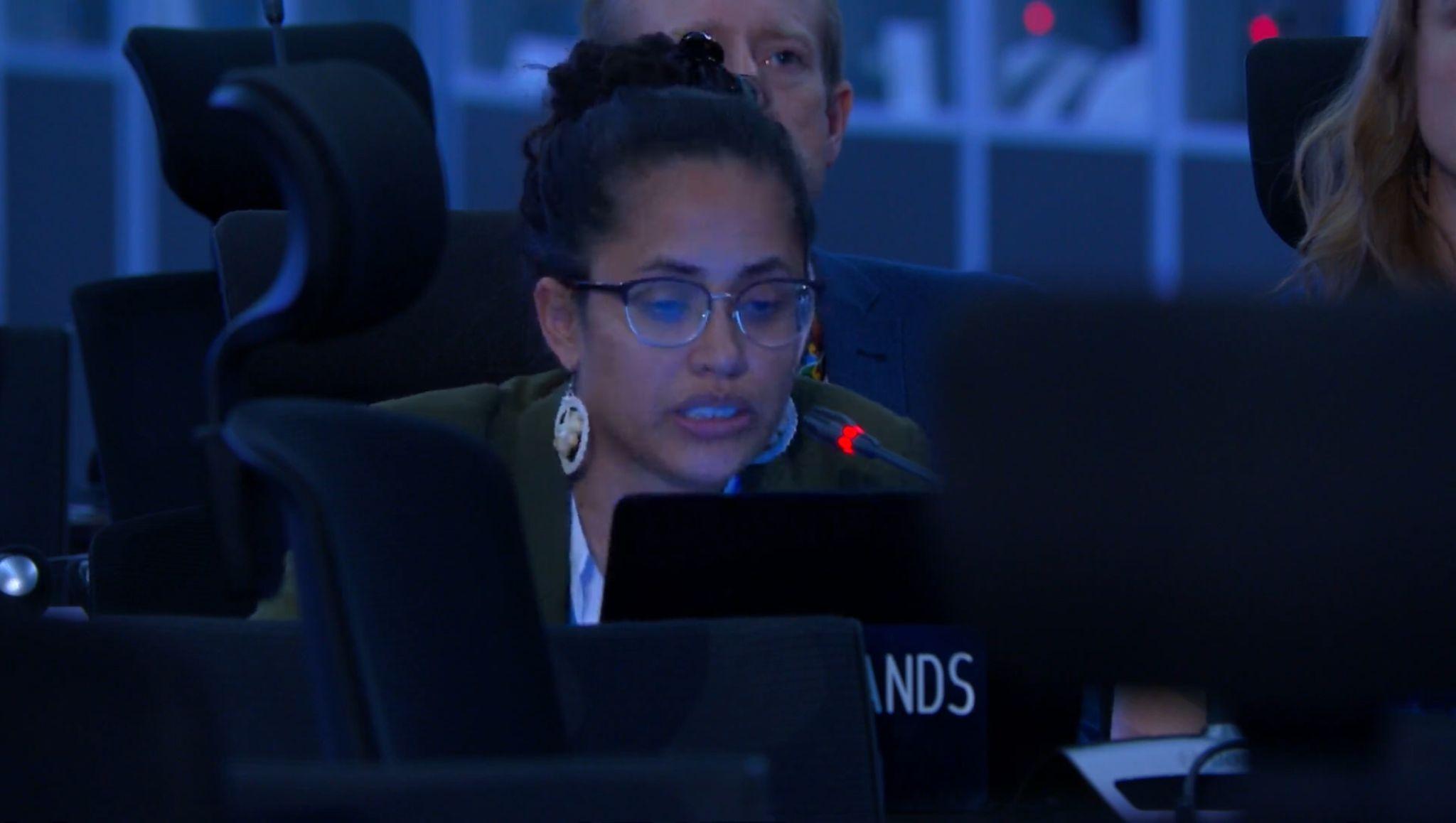
On behalf of the UK, Alok Sharma (last year’s COP President in Glasgow) noted that despite the essential progress on L&D finance, this is not a full-fledged celebration. Using his metaphor from last year, he first mentioned everything that is not in this text and then said that the “pulse of 1.5” was weak last year and it “remains on life support” as of now. Which means, “we need to step up soon, otherwise we will be found wanting …and we will have to explain this to our children and grandchildren, whom many of us go home to now.”
Finally, some of the constituencies addressed Parties, including Women and Gender (WGC), and Youth NGOs (YOUNGO), Environmental NGOS (ENGO) and Indigenous Peoples Organizations (IPO). While ENGO spoke of “hope” for the entire Global South, the Indigenous Peoples Representative highlighted the shortcomings and disappointments of COP27: “For us, it is a matter of life and death.” They had a “feeling of apathy and disappointment” as this “delay [in decisive action] replicates new forms of climate colonialism” and is “leaving our communities at risk of carbon colonialism.” They reiterated their call for better participation of Indigenous voices in the negotiations - “we have the solutions to change, we must be included in the decisions.”
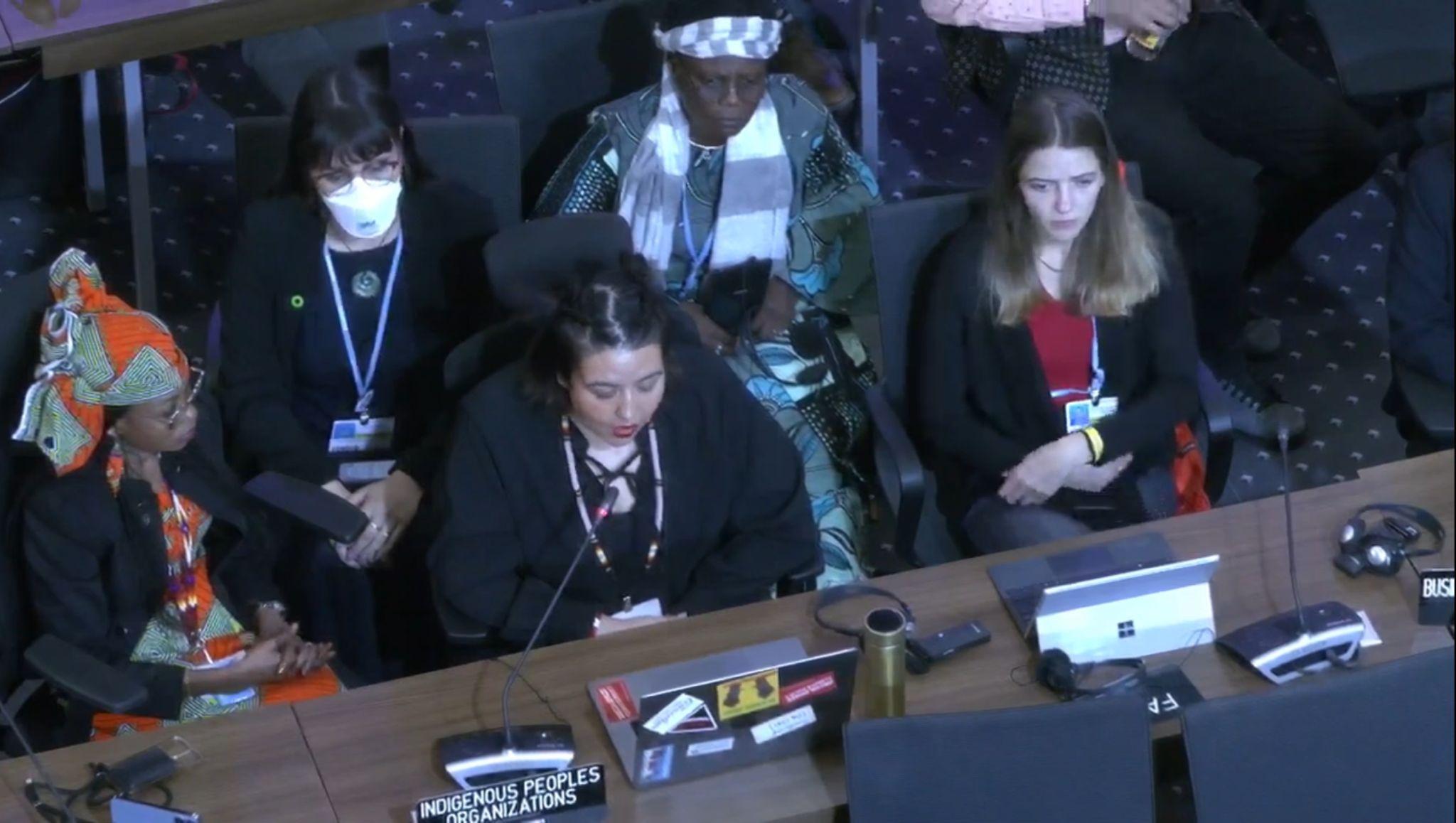
The Women and Gender Constituencies earned a lot of applause when she ended on this urgent note: “this treaty is treating the symptoms but not the cause; these negotiations are already lost and damaged, and if you want to fix it, you need to kick out the fossil fuel lobbyists.” This was echoed by YOUNGO who alluded to the presence of over 600 fossil fuel lobbyists and urged, “this can’t be happening at future COPs” in terms of conflict of interest. They stated, “we are the present and we are the future and we will hold you to account."
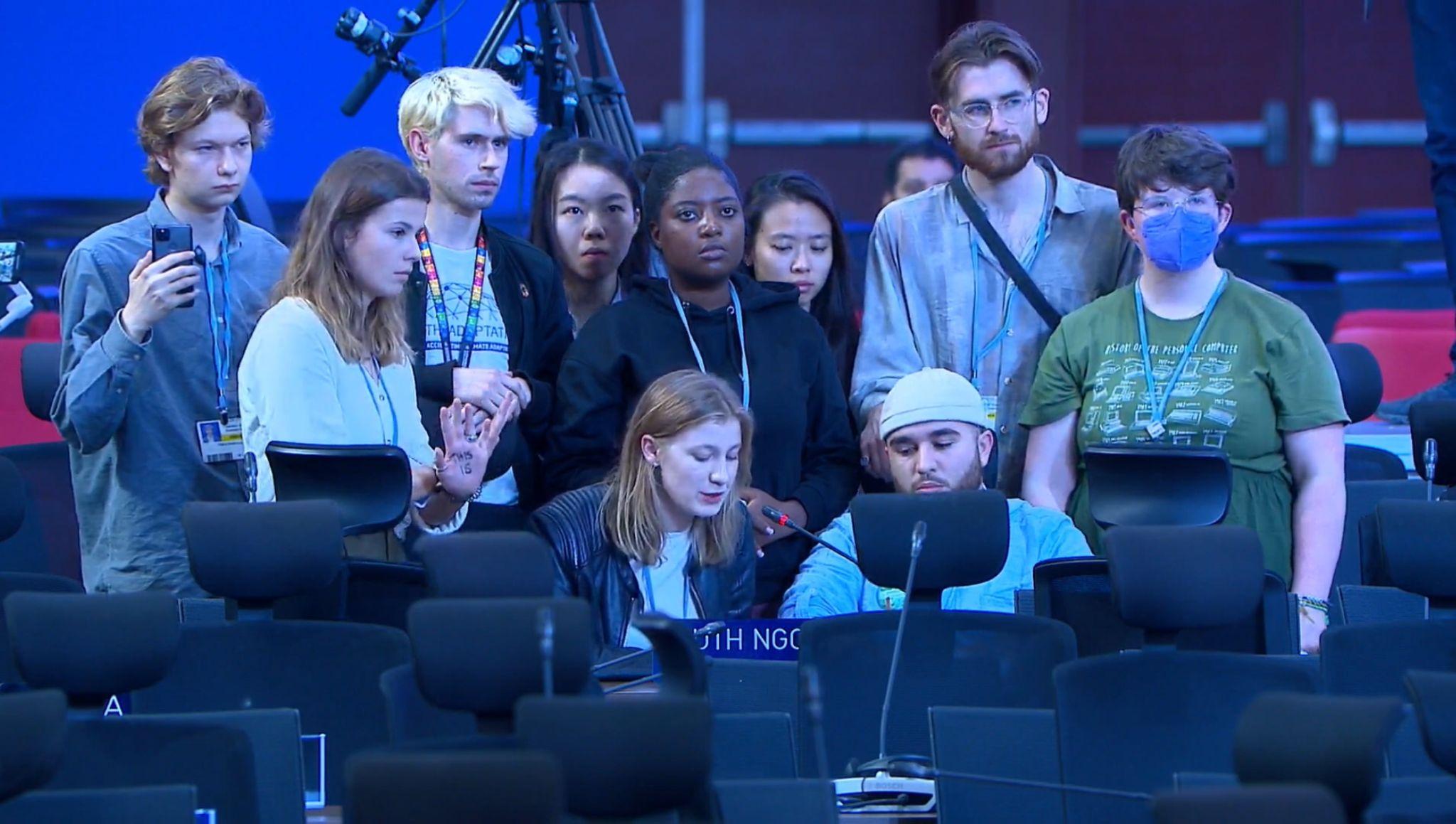
At 09:20 local time, the COP President thanked everyone involved and gaveled the conference to a close.
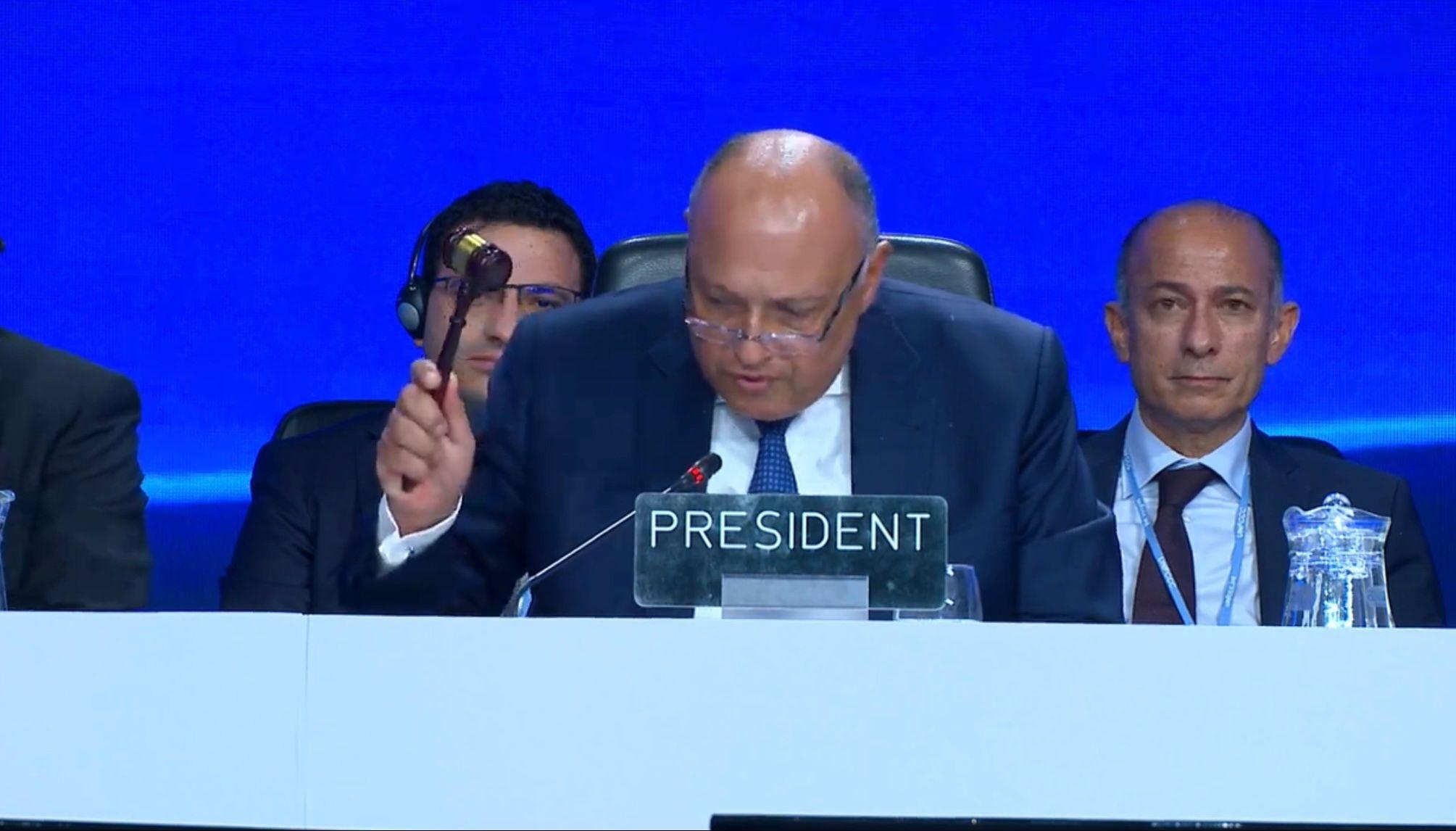
I will be traveling back to Cambridge tonight and will be back in the next days with a COP27 debrief here on the blog, so stay tuned!
